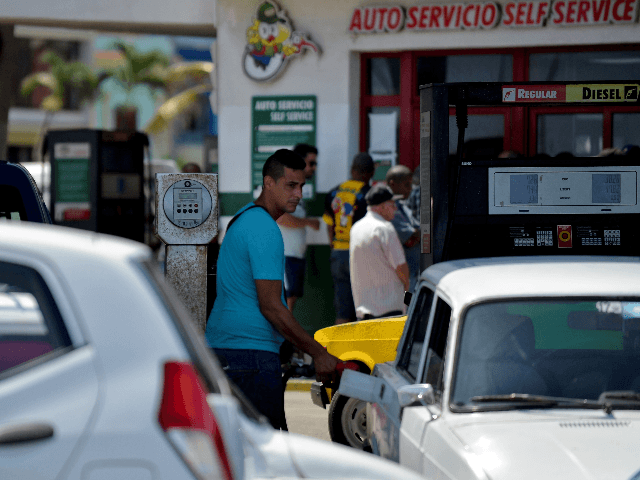Motorists in Venezuela have started paying for gasoline with items such as cigarettes and candy bars due to the worthlessness of the country’s bolivar currency, a report revealed Tuesday.
A report from the Associated Press revealed that, with the government effectively giving out free gasoline, many gas station employees are instead asking for simple bribes such as cigarettes, candy bars, a bag of rice, or cooking oil. Most attendants do not know the price, and those who are empty-handed just get waved through having paid nothing at all.
“You can pay with a cigarette,” Orlando Molina, told the agency while filling up his subcompact Ford Ka in Caracas. “Heck, it’s no secret to anyone that it goes for nothing.”
The government has long subsidized gasoline since Hugo Chávez came to power in 1998 as an integral part of his socialist revolution. Yet despite the stratospheric levels of hyperinflation, the Maduro regime has refused to raise prices, meaning that the cost of filling up a tank is equivalent to just a fraction of a cent.
One Caracas resident, identified as María Pérez, told the agency that many customers would happily pay more for gas if the government would use the proceeds to invest in improving road safety. “Our roads are unbearable,” she explained. “There are huge holes — craters — that not only damage our cars but also put our own lives at risk.”
Maduro has acknowledged that the state-run oil company Petroleum of Venezuela (PDSVA) runs a deficit of billion dollars a year because of the enormous discrepancy between the cost of gasoline and the costs of production.
The low cost of fuel is helped by the fact that Venezuela sits upon the world’s largest oil reserves, although that has not prevented widespread shortages of gasoline, with oil production last year falling to under one million barrels a day, a thirty-year low. As a result, the country is currently importing around 300,000 barrels of oil a day to help ease domestic fuel shortages.
Following Chávez’s election in 1998, production was around 3.2 million barrels a day. Most analysts attribute the collapse in production to the Chávez and Maduro regime’s mismanagement of the once-thriving entity, which led to chronic inefficiencies and a mass walkout of employees and directors, whose experience was vital to the company’s success.
Fuel shortages have consequently become commonplace, with reports of people queuing for days to access gasoline and the military imposing rationing at gas stations across the country. In June, one man was killed and another seriously injured following a violent scrap for gasoline at a service station in the state of Mérida. The shortages have not affected the Caracas metro area, with the Maduro regime prioritizing supplies to the capital in an attempt to alleviate pressure within the city most important to his regime’s survival.
Follow Ben Kew on Facebook, Twitter at @ben_kew, or email him at bkew@breitbart.com.

COMMENTS
Please let us know if you're having issues with commenting.